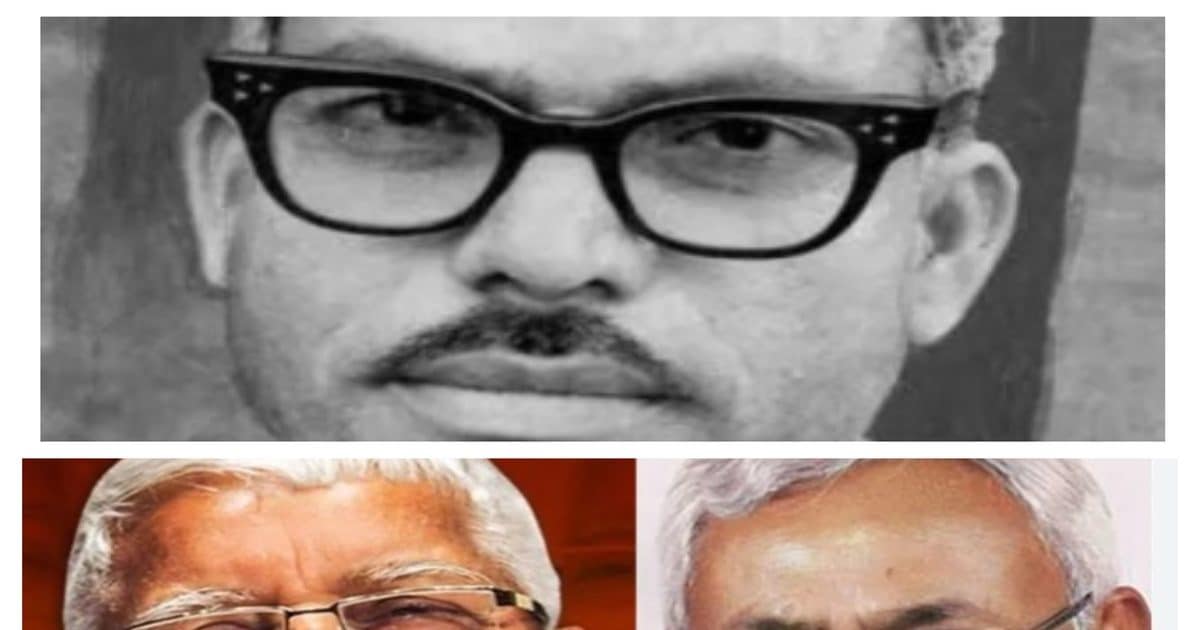Last updated: September 24, 2025, 18:55 IST Bihar Chunav: The Grand Alliance launched the extreme backward Justice resolution on September 24, 2025. It is linked to the historical policy of Jannayak Karpoori Thakur. This is a new turn of discussion politics in Bihar. It must now be seen how much effect it will have in Bihar politics. Politics has always been hot in Bihar about the rights of backward and extremely backward classes. Patna: Politics has always been hot in Bihar about the rights of backward and extremely backward classes. On September 24, 2025, the Grand Alliance ‘Backward Justice Resolution’ launched. Which includes very large steps for backward classes. But that is compared to the policy of Karpoori Thakur. Which first implemented in 1977-79 for backward and poor upper castes (EWS) for backward and poor upper castes (EWS). Let us know what is the new turn of reserve politics in Bihar from Karpoori Thakur to Grand Alliance? The most backy justice of the Grand Alliance is the most important point of the most backy justice. The extreme backward law on the prevention of atrocities will be approved. Discussion in Panchayat and municipal bodies will be increased from 20% to 30%. The law passed from the legislature will be included in the ninth schedule to the center. The concept such as “not found suitable (NFS)” in appointments will be declared illegal. In the list of extremely backward classes, cases of low or extreme inclusion are handled by a special committee. Landless will be provided 3 in urban areas and 5 desmal residential land in rural areas. Half of the seats reserved for private schools for backward, sc/st and children of stems. 50% discussion in government contracts to Rs 25 crore. Discussion is implemented for entries at private educational institutions. Formation of high empowered regulatory authority to oversee discussion. Karpoori Thakur’s historical contribution Karpoori Thakur implemented reservation for the first for poor Upper Castes (EWS) and backward classes after independence and began several welfare schemes. In 1977-79, Karpoori Thakur implemented 26% discussion for backward and extremely backward classes. In this, the poor upper cabinets (EWS) also discussed 3%. He benefited the most backward class by sharing the OBC and EBC category. He ended Malgujari in Panchayats, ended the English imperative in education and started a residence scheme for poor students. This policy has strengthened the struggle for social justice and backward rights in Bihar. It is considered an important contribution of social justice. The recommendations of the Mandal Commission came into effect in the Mandal Commission and the Nitish-Lalu dispute 1990, in which there was talk to 27% reservation to Backward (OBC). There were differences between Nitish Kumar and Lalu Prasad Yadav to implement it in Bihar. Lalu Yadav wanted it to be implemented as soon as possible, so that the Yadav boxes have more benefits. Nitish said that all backward castes should get a part of equality. This difference has given a new direction to the backward cabinets politics in Bihar. The Kurmi Chetna rally began in 1994. In which Kurmi, Kushwaha and other backward castles began to ask for their power and rights. Nitish formed Samata Party (1994) on this basis and separated from RJD. The political reference of today to the Grand Alliance seems to be pushing this historical stream forward. This resolution is an attempt to make caste balance, social justice and reservation more comprehensive. According to the argument of Nitish Kumar, the reservation must be the medium of social reform, education and economic development, not just one percent. This resolution will ensure new opportunities, employment and land/housing for backward and extremely backward classes in Bihar. During the Bihar election, the political impact on the voting bank of backward and extraordinary backward classes is likely to be affected. By reminding Karpoori Thakur, the Grand Alliance reinforces its agenda for social justice. This resolution also gives political messages between Lalu-Nitish’s old controversies and caste comparisons. The struggle for backward castes in Bihar politics continues today, and the very backward correction of justice can give it a new turn. About the author Amit Ranjan, I worked in electronic, print and digital media in my 12 year old career. My journey started with Star News and reached Dainik Bhaskar, Dainik Jagran, Daainik Bhaskar Digital and Local 18. Of reporting … Read more I worked in my 12 -year career in electronic, printed and digital media. My journey started with Star News and reached Dainik Bhaskar, Dainik Jagran, Daainik Bhaskar Digital and Local 18. Take the reporting … Read more first published: September 24, 2025, 18:55 IST Homebihar Extreme Backward Justice Resolution! From Karpoori to Grand Alliance, new mode of discussion politics
Bihar Chunav: Extreme backward solution! From Karpoori to Grand Alliance, New Twist of Reservation Politics in Bihar
